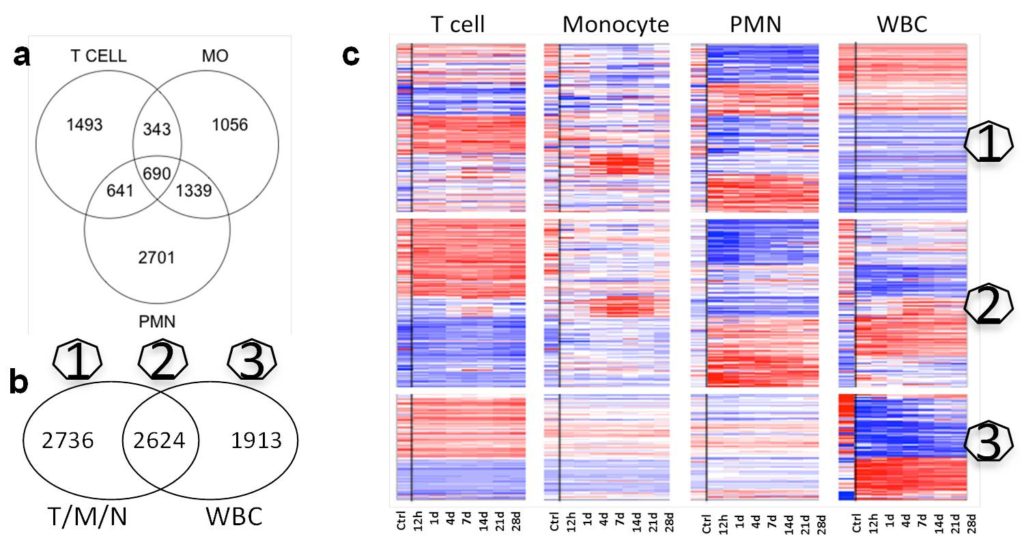INTRODUCTION
Trauma injury remains a major human disease, causing >2 million hospitalizations and >120,000 deathsv every year in the US. The resulting toll on humanity and the cost to the society is staggering (estimated >$200 billion per year). To date, all the clinical trials to block the inflammatory response in critically ill patients failed.
The host response to trauma and burns is a collection of physiological and pathological processes that depend critically upon the regulation of the human innate immune system. Our research focuses on integrative analysis of these comprehensive genomic, proteomic, and clinical datasets generated by the Glue Grant Consortium to identify the molecular mechanisms underlying human systemic inflammation for early prediction of patient risk and stratification of patient care and identification of genes and pathways controlling patient outcomes as potential therapeutic targets. In addition, inflammation is also the most common condition of human diseases. Understanding the molecular mechanism of human inflammation will be helpful to other diseases, e.g. cardiovascular diseases and diabetes.
Research
A. Studying the Genomic Response to Systemic Inflammation
- Systemic inflammation introduces a genomic storm in patients that affects all the major functions and pathways. This genomic response includes simultaneously increased expression of genes involved in the innate immune responses and suppressed expression of genes involved in adaptive immunity.
- Complications like nosocomial infections and organ failure are not associated with any genomic evidence of a “second hit”and differ only in the magnitude and duration of this genomic reprioritization.

- The gene changes are highly consistent in patients of different inflammatory diseases, although the recovery time varies from days to weeks to months.


B. Studying Cell and Tissue Specific Response to Inflammation
- Inflammatory response is cell specific in T cells, monocytes and neutrophils

- Inflammatory response is tissue specific in fat and muscle

C. Early Prediction of Patient Outcomes from Gene Expression

D. Analysis of Alternative Splicing after Injury
